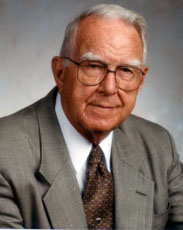RAPTOR CENTER TREATING BALD EAGLE FOUND WITH LEAD POISONING
The DNR is bringing more and more Bald Eagles to the University of Minnesota Raptor Center to receive treatment for lead poisoning. Recent University research shows that these birds are eating fragments left behind from bullets and shells, which causes acute lead poisoning.
Click here for more information.
TEAMING UP TO DELIVER FIRST-OF-ITS-KIND SPECIALIZED CARE
The University of Minnesota’s School of Dentistry and pediatric specialists at the University of Minnesota Children’s Hospital, Fairview recently joined forces to offer interdisciplinary care for children with Velocardiofacial syndrome (VCFS), the most common syndrome associated with cleft palates.
VCFS occurs when a small part of chromosome 22 is missing or has been deleted. It is the most common chromosomal condition next to Down syndrome; roughly 1 in 2,000 to 4,000 children are born with this syndrome. It is known by several different names, including DiGeorge syndrome. Symptoms associated with VCFS include behavioral and mental health disorders, cognitive and speech-language delay, and cardiovascular defects.
Now, under one roof, specialists in cardiology, genetics, rheumatology/immunology, psychiatry, plastic surgery, speech-language pathology, otolaryngology, audiology, nursing, and dentistry have formed an integrated team that provides care for patients at the Cleft Palate and Craniofacial Clinics.
MPLS.ST.PAUL MAGAZINE NAMES "TOP DOCTORS"
 “To whom would you send your loved ones for medical care?” asked Mpls/St. Paul Magazine to 5,000 Twin Cities doctors and nurses to create their annual list of Twin Cities “Top Doctors.” Seventy University of Minnesota Medical Center, Fairview physicians made the cut and our own Patricia Judson was featured for her work in gynecological oncology in the article appearing in the magazine’s January edition.
“To whom would you send your loved ones for medical care?” asked Mpls/St. Paul Magazine to 5,000 Twin Cities doctors and nurses to create their annual list of Twin Cities “Top Doctors.” Seventy University of Minnesota Medical Center, Fairview physicians made the cut and our own Patricia Judson was featured for her work in gynecological oncology in the article appearing in the magazine’s January edition.
PLANNING KEY TO HEALTHY PREGNANCY
 January is national birth defects prevention month, and one way to help ensure a healthy pregnancy is to make sure you’re planning accordingly. Studies show that more than half of all pregnancies in the United States are not planned, and that unplanned pregnancy is associated with poorer maternal and infant outcomes. Many unplanned pregnancies are related to either lack of or ineffective contraceptive use. In addition to identifying the right time for pregnancy, women should have a preconception visit with their healthcare provider to assure that they are in the best possible health and have the resources, information, and support they need for a healthy pregnancy.
January is national birth defects prevention month, and one way to help ensure a healthy pregnancy is to make sure you’re planning accordingly. Studies show that more than half of all pregnancies in the United States are not planned, and that unplanned pregnancy is associated with poorer maternal and infant outcomes. Many unplanned pregnancies are related to either lack of or ineffective contraceptive use. In addition to identifying the right time for pregnancy, women should have a preconception visit with their healthcare provider to assure that they are in the best possible health and have the resources, information, and support they need for a healthy pregnancy.
Why is preconception planning important? Because parenting is a complex and permanent life event, individuals must prepare for it emotionally, financially, socially, and intellectually.
FORMER MEDICAL SCHOOL DEAN DIES
 N. L. (Neal) Gault Jr., M.D., beloved former dean and alumnus of the Medical School, died of pancreatic cancer this week at his St. Paul home. He was 88.
N. L. (Neal) Gault Jr., M.D., beloved former dean and alumnus of the Medical School, died of pancreatic cancer this week at his St. Paul home. He was 88.
Dean of the Medical School from 1972 to 1984, Gault was known for his commitment to students, especially for helping them deal with the financial pressures of medical school. This commitment led Gault and his wife Sarah, a University alumna and physician who passed away in 1994, to create several funds to help medical students finance their education. Additionally, he helped establish the world’s first endowed chair in sexual health at the University and served on the leadership advisory council for the Program in Human Sexuality.
A memorial service will be held at 4 p.m., Jan. 16, 2009 at the University of Minnesota’s Mayo Auditorium, 425 Delaware St. S.E., Minneapolis.
The $292 million Minnesota Biomedical Research Program will add nearly 400,000 square feet of critically important research space near TCF Bank Stadium and Mariucci Arena. The biomedical research district is already home to the Lions Research Building wrapped by the McGuire Translational Research Facility and the Center for Magnetic Resonance Research.





